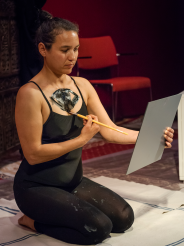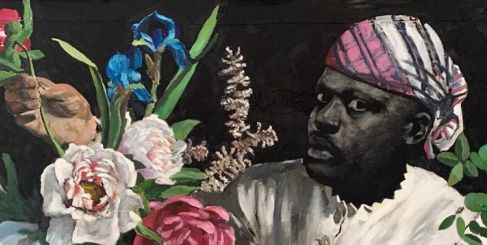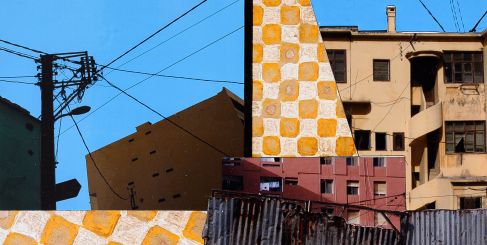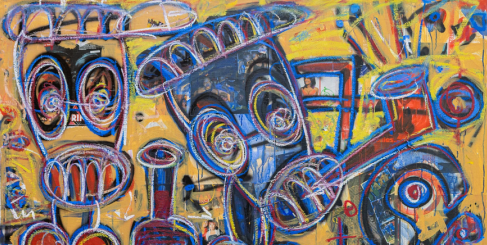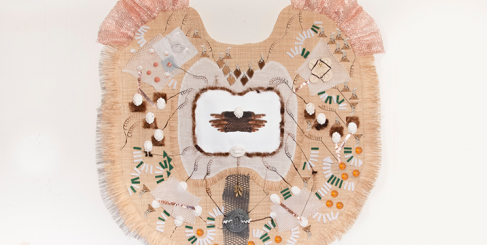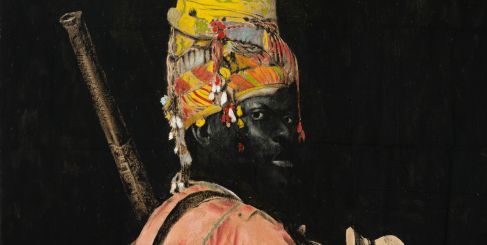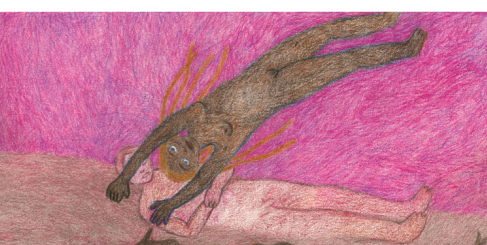News
Galerie Cécile Fakhoury - Abidjan presents Innocente, an exhibition from franco-algerian artist Dalila Dalléas Bouzar
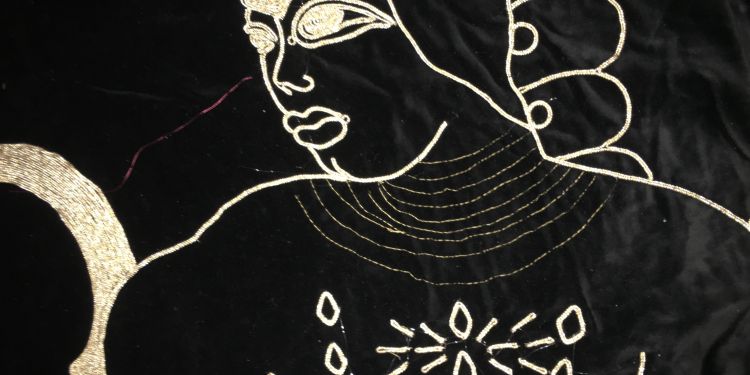
Innocente is the second solo exhibition of the Franco-Algerian artist Dalila Dalléas Bouzar in Abidjan.
In a new series of works, she continues to affirm her identity as a woman and a painter, while exploring the disappearance of her past. She is particularly interested in the themes of the pictorial representation of women as an assumption of power, transmission and female filiation.
In her works, Dalila Dalléas Bouzar expresses an ideal of the women’s status, reinvested with all their power, both real and magical. Innocent women, freed from the weight of the man’s body, which oppresses them symbolically and physically; freed from a fictitious fault to which they are constantly being driven by a patriarchal society. The word Innocente resonates strongly, as a hope, a struggle, a call.
The artist here continues her work of diverting the codes of Western painting, at the basis of her work, by shaking up the regimes of representation of the female body, through a series of paintings entitled Sorcières and the embroidered tapestry Adama, the main piece in the exhibition, created during a residency in Algeria. Through these works, Dalila Dalléas Bouzar invokes ancestral collective memories in order to infuse our imaginations with images of women transfigured by their own strength.
Galerie Cécile Fakhoury
Galerie Cécile Fakhoury opened its doors in Abidjan, Ivory Coast in September 2012. In May, 2018 the gallery inaugurated a second space in Dakar, Senegal and a showroom in Paris. The gallery aims to promote contemporary art in Africa. It offers visibility to creativity and contemporary artistic diversity in Africa through its programming of solo shows and group exhibitions, participation in international art fairs and biennales, and through its collaboration with foreign galleries.
Strongly rooted in their respective identities and stories, the artists represented by the gallery distinguish themselves through the use of a language that abolishes barriers and rejects geographical stigmatisation. Observers of a world they live in, these artists take an enlightened and critical look at our society. The diversity of their aesthetic gestures, committed positions to grab the complexity of History, participates in the writing of a living memory and asks us to reconsider our own relation to the world.

